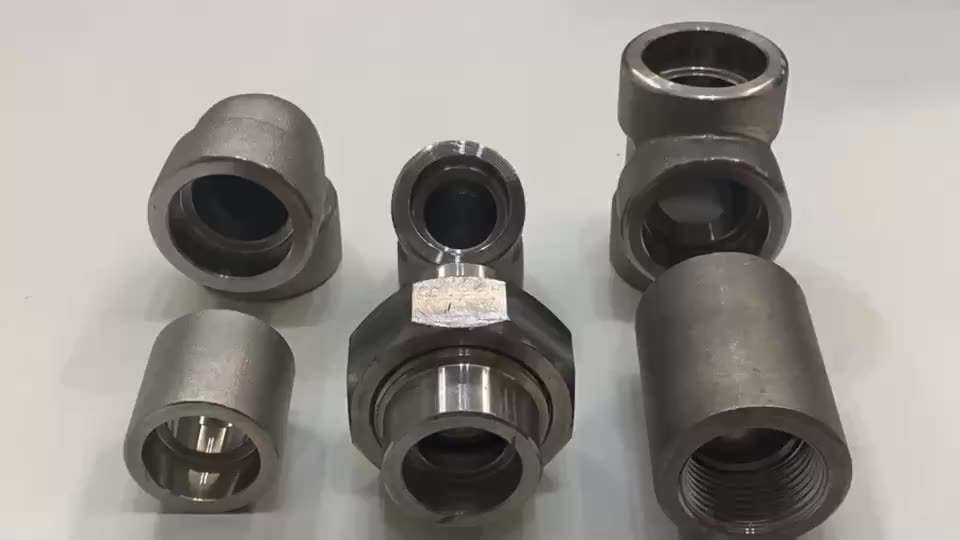Forged pipe fittings are essential components in piping systems, offering superior strength, durability, and resistance to high pressure and temperature. These fittings are commonly used in industries like oil and gas, chemical processing, and power generation. But how are Forged Pipe Fittings made? In this blog, we will walk through the step-by-step manufacturing process, highlighting its benefits and importance.
What Are Forged Pipe Fittings?
Forged pipe fittings are produced by shaping metal through localized compressive forces, usually using hammers or presses. This process refines the metal’s grain structure, enhancing its strength and durability. These fittings are widely used in high-pressure and high-temperature applications due to their superior mechanical properties.
Step-by-Step Manufacturing Process
1. Selection of Raw Material
The process starts with selecting high-quality raw materials, usually carbon steel, stainless steel, or alloy steel. The choice of material depends on the intended application and industry standards.
2. Cutting and Heating
Once the raw material is selected, it is cut into the required size and heated to a specific temperature. The heating process is crucial because it makes the metal more malleable, reducing the effort required to shape it.
3. Forging Process
The heated metal is then placed under a hammer or press, where it is shaped into the desired form through high-pressure compression. This process enhances the metal’s grain structure, improving its mechanical strength and resistance to impact.
4. Trimming and Flash Removal
After forging, excess metal (flash) is trimmed to ensure precise dimensions and a smooth surface. This step ensures that the forged pipe fitting meets the required specifications.
5. Heat Treatment
To further enhance the mechanical properties, the forged fittings undergo heat treatment. This process includes annealing, normalizing, and quenching, which help in increasing the toughness and durability of the fittings.
6. Machining and Finishing
Once heat-treated, the fittings are machined to achieve the required tolerances and surface finish. CNC machines and lathes are commonly used to ensure precision and consistency.
7. Testing and Quality Control
Before the fittings are dispatched, they undergo rigorous testing to ensure they meet industry standards. Common tests include:
- Hardness Testing – Measures the hardness of the fitting.
- Hydrostatic Testing – Checks for leaks under high pressure.
- Non-Destructive Testing (NDT) – Ensures there are no internal defects.
8. Surface Coating and Packaging
To prevent corrosion and enhance longevity, the forged pipe fittings may be coated with anti-rust treatments or galvanization. After coating, they are packed and prepared for shipment to Forged Pipe Fittings Suppliers and industries worldwide.
Benefits of Forged Pipe Fittings
1. Superior Strength and Durability
Forging refines the metal’s grain structure, making the fittings stronger and more durable compared to cast fittings.
2. High Resistance to Pressure and Temperature
Forged fittings can withstand extreme pressures and temperatures, making them ideal for demanding industrial applications.
3. Leak-Proof Joints
Due to their excellent structural integrity, forged pipe fittings provide secure, leak-proof connections, reducing the risk of failures.
4. Corrosion Resistance
With proper coatings and material selection, forged fittings offer excellent resistance to corrosion, extending their lifespan.
Common Applications of Forged Pipe Fittings
- Oil & Gas Industry – Used in high-pressure pipelines.
- Chemical Processing Plants – Ideal for handling corrosive fluids.
- Power Plants – Suitable for steam and water pipelines.
- Shipbuilding – Used in marine piping systems.
- Pharmaceutical Industry – Ensures contamination-free fluid transfer.
Conclusion
The manufacturing process of Forged Pipe Fittings ensures high-quality, durable, and reliable components for industrial applications. With rigorous testing and precise machining, these fittings meet industry standards and provide long-lasting performance. If you’re looking for durable piping solutions, sourcing from trusted Forged Pipe Fittings Suppliers is the best choice for high-performance applications.

